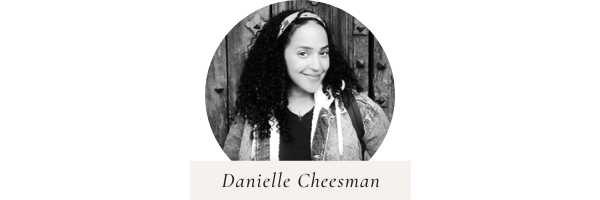
Why Our Goals Don’t Always Have To Be Productive
Long-term, short-term, S.M.A.R.T.
Goals are packaged so many ways, and often sold to us as steps toward a measurable success: a higher salary, an earlier wake time. Mastery and performance are popular frameworks for goal setting, so it’s no surprise that productivity is the intent. But what happens when we fall short of a yield-based goal? I personally feel shame when I avow, year after year, to read more books only to miss the mark. Can’t we experience achievement without accrual?
Setting goals can improve our focus and increase our self-confidence. And more revealing, we’re truly dependent on pursuing them; a 1990 study determined that all living organisms, from plants to people, “must engage in goal-directed actions in order to survive.”
“Can’t we also pursue goals that speak to our interests, instead of our output?”
To survive. How extreme—as if the only goals that matter are the ones linked to the bare essentials.
But can’t we also pursue goals that speak to our interests, instead of our output? The ones that are driven by our preference instead of our performance, the ones that are abstract instead of calculable. Gentle goals. Couldn’t those, too, be lifebloods?
Good news: Yes.
“Our world today is almost addicted to achieving productive goals,” says Katina Mountanos, founder of the On Adulting community and co-founder of the mental wellness start-up daydreamers. That obsession, she adds, can be more harmful than if we set simple ones instead. “This is because our brain becomes so invested in our goals, it equates not achieving them with experiencing a loss of self,” which is why we might feel anxious, stress, or demotivated when we don’t live up to them.
Instead, Mountanos suggests that we view goal-setting as a tool to experience a sense of purpose. “I like to think of gentle goals as setting intentions because then we can practice becoming invested in the process rather than the outcome,” she says. More than a mindful plan, Mountanos insists too that we don’t even need to be good at these goals, nor should we try to turn them into a side hustle. They can be unproductive.
“Practice becoming invested in the process rather than the outcome.”
If, for example, we’ve been feeling creatively unfulfilled and our goal is to build a creative habit, Mountanos suggests we experiment with painting (or whatever our choice of art) a few times a week with the intention of shifting our mood rather than perfecting the output. (Like Elizabeth Gilbert said, “Your art…doesn’t have to be important.”)
Maybe instead of taking a self-imposed oath to cook every single day, we can choose to experiment with new spices and seasonings whenever we do. Maybe instead of feeling guilty about a surge in our screen time, we can mindfully adjust what we’re engaging with, opting for articles (or podcasts and MasterClasses) over Instagram. Or, as my colleague shared, we can make it our mission to reach level 100 in Red Dead Redemption 2 Online. (“Does it matter in the real world? No. But am I excited to level up before I play with my virtual teammates this weekend? Yes.”)
For my own recurring resolution, I shifted my intention this year and pledged not to read more books, but to only read ones written by women and nonbinary authors. Just like that, I freed myself from quantitative constraints; I could read two books over the course of 12 months and still meet my goal!
Ultimately, we can make it a priority to set goals that are purely for pleasure.
“Ask ourselves what and where in our lives we’d like to explore with curiosity instead of constraint.”
To determine where to start, we can ask ourselves what and where in our lives we’d like to explore with curiosity instead of constraint. Mountanos suggests we first look at the areas that are “nice to have” instead of those that are a necessity. “So you can experiment with flexibility,” she says.
The next thing that came to mind, for me, was my journaling habit. I’ve long struggled with journaling daily. Instead, I’ve naturally—and only—turned to my notebook when having a bad day. Doing this has left me with years’ worth of pages that, when looked at collectively, tell a false narrative of my life. Of course I’ve had good moments; I’ve had better than good, I’ve had blissful. But no one, myself included, would be able to tell that based on my own accounts. And that’s not how I’d like to remember my life when, say, I can’t remember much of anything anymore. 🥺
So, instead of forcing myself to write every single day, I can at least try to jot down a few lines on good days, too. That is what gentle goal setting can look like. Doesn’t that feel good?
This isn’t to say that lofty, ambitious goals are to be condemned; we are the definers of our own success and self-discipline and mastery can certainly be personal values we hold close to our hearts. But if the completion or lack thereof of such goals ever begins to come at the expense of determining our self-worth, surely we can pursue softer others. It is always an option to aim for something that has nothing to do with our output.
“If the completion or lack thereof of goals ever begins to come at the expense of determining our self-worth, surely we can pursue softer others.”
Either way, we still reap the benefits. “Regardless of if your goal is ‘productive’ or not,” says Mountanos, “goal-setting is scientifically linked to a ton of positive well-being impacts, from self-motivation to a sense of fulfillment.” She adds that our brains release dopamine when setting and working toward goals and becomes primed to experience pleasure and satisfaction when committed to reaching them. No matter the size.
“At the most basic level,” says Mountanos, “we can think of goal-setting as a tool to help our brains get motivated and experience a sense of purpose.”
When feeling stuck, uninspired, or in need of a confidence boost, gentle goal setting allows us to create an easy and immediate win for ourselves. Instead of commanding our curiosities, the achievement can lie in nurturing them.
What “un”productive goal are you pursuing and why? Share in the comments below!
RELATED READING
Danielle Cheesman was born and raised in New Jersey, where she lived until moving to Philadelphia to study journalism at Temple University. She has spent her years writing and developing editorial visions for music, art, and lifestyle brands. Now residing in Los Angeles, you can usually find her taking pictures, making playlists, or cuddling her pup. Say hi on Instagram!
